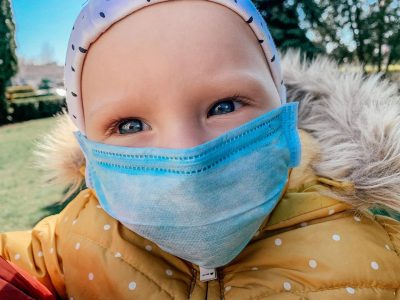COVID-Era Babies Are ‘Talking’ Less, Signaling Future Reading Challenges

All Global Research articles can be read in 51 languages by activating the “Translate Website” drop down menu on the top banner of our home page (Desktop version).
To receive Global Research’s Daily Newsletter (selected articles), click here.
Visit and follow us on Instagram, Twitter and Facebook. Feel free to repost and share widely Global Research articles.
***
Important article by Forbes. Selected excerpts.
Our thanks to Forbes for bringing this article to our attention.
***
We know the pandemic has had a serious negative impact on the academic achievement of school-age children. But recent evidence shows we also need to worry about Covid-era babies and toddlers.
Because of Covid-related disruptions, about a third of early elementary students will likely need intensive support to become proficient readers, according to one study. Now two additional studies suggest that many children born during the pandemic will also be at risk for academic failure. It seems that overburdened parents haven’t been able to engage babies and toddlers in the kind of “conversation” that is crucial for language development—and eventually, for reading.
…
Independently, another study from Brown University’s Advanced Baby Imaging Lab found similar results. The lab has been tracking over 1700 families with young children since 2010. One year into the pandemic, researchers found that children’s average cognitive performance was the lowest it had been since the study began. A separate analysis of infants found a dramatic decline in verbal functioning in 2021, apparently because adults were initiating fewer conversational turns.
The reasons for the decline in vocalizations and conversational turns aren’t entirely clear from the data, but the Brown study concluded that factors related to the pandemic had “by far the greatest impact on infant and toddler neurodevelopment.”
…
While it’s true that schools and teachers have been stretched thin as a result of the pandemic, it would be nothing less than a tragedy if their added burdens were used as a reason to stick with an approach to reading instruction that has been failing students for far too long. Especially in light of this new evidence that the negative impact of Covid is likely to be with us for years to come, we have no time to waste in adopting materials and methods that can work for all students, including the most vulnerable.
Click here to read the full article.
*
Note to readers: Please click the share buttons above or below. Follow us on Instagram, Twitter and Facebook. Feel free to repost and share widely Global Research articles.
Natalie Wexler is the author of The Knowledge Gap: The Hidden Cause of America’s Broken Education System—and How to Fix It (Avery, 2019). She is also the co-author, with Judith C. Hochman, of The Writing Revolution: A Guide to Advancing Thinking Through Writing in All Subjects and Grades” (Jossey-Bass, 2017). Substack: https://nataliewexler.substack.com/
Featured image is from Pixabay

